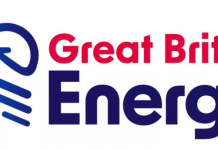 A Brexit vote may have implications for transparency, energy integration and renewable energy. But what does it mean for energy managers, asks Stuart Lloyd-Evans, director of risk and trading operations at Opus Energy in this sponsored post.
A Brexit vote may have implications for transparency, energy integration and renewable energy. But what does it mean for energy managers, asks Stuart Lloyd-Evans, director of risk and trading operations at Opus Energy in this sponsored post.
The news agenda at the moment is dominated by politics and the future of our island. ‘Brexit’ discussion is everywhere – and at times it may feel like we can’t escape it. Whether we watch it on the news, listen to it on the radio or receive leaflets through our door; we know the Brexit vote is coming, even if we don’t know whether we’re for or against.
In fact, it seems we can’t even escape this topic at work anymore. According to our new research, it’s been setting tongues wagging – from facilities managers to SME owners. The research found that 23% of respondents are sharing their opinion on Brexit and how they intend to vote directly with employees and fellow colleagues at work. This doesn’t stop at work, with 43% discussing how they will vote with their family.
In fact, less than a third of decision makers (30%) have kept their opinion to themselves, with size of business seemingly influencing their decision to share their thoughts. Those most likely to share their views were work for SMEs with more than 100 employees (19% not sharing their opinions), and smaller businesses remain more secretive (a quarter).
However, one of the main problems of the campaigns so far is that amongst the scaremongering, there is little information on what it actually means for us. So while people may be discussing their views openly, it may not be shedding any light on how it will affect us, and how it might have an impact on our jobs and daily lives.
So what does a possible Brexit mean for the energy/facilities management market?
Energy integration
Irrespective of Brexit or not, a tightknit political union looks to be off the agenda on both sides, causing a state of flux with its associated uncertainty.
Within the energy markets across the EU, it’s far from clear if the march of energy integration would be stopped or not. Currently, there is an ongoing EU drive for energy market coupling and common security of supply measures (which considering the supply and demand issues experienced, coupled with a trend of rising energy costs across the continent, is not surprising).
Whether the UK would be allowed to (or want to) stay in the club is far from clear if we did decide we’re better off going it alone. Potentially the UK could become an energy island with all the flexibility, and risks, associated with that. For a facilities manager responsible for energy provision across multiple sites, this potential cost fluctuation may be an influencing factor in business profitability.
REMIT
In addition the EU obligation, REMIT (Regulation on Wholesale Energy Market Integrity and Transparency) – the obligation to report all wholesale trades and supply contracts over 600GWh – may be lost to us.
This framework for identifying and penalising market abuse in the UK and across the rest of Europe is designed to help consumers, industry and other participants to have confidence that energy prices are open, fair and competitive.
Again, if we were to exit the EU, would this army of analysts pouring over any wrongdoing be lost to us, potentially rendering the UK open to market abuse? While this is unlikely, it is still something to consider in terms of market parity and competitiveness.
Green power revolution
While the UK’s renewable energy revolution remains in the headlines, the UK still attracts significant amounts of green energy due to its subsidy schemes. This is part of the Renewable Energy Guarantees of Origin (REGO) scheme.
The purpose of this is to promote and increase the contribution of renewables to electricity production in the UK and across the EU, providing a common platform to facilitate the trade of renewable electricity between member states. If the European Guarantees of Origin (GOO) certificates ceased to be used in the UK, would there still be a mechanism for pan-European energy certification? This remains to be seen.
Money, money, money
The price of electricity itself could be impacted if the Government chose to amend the carbon prise support mechanism. Embedded within UK wholesale electricity price is an additional cost of carbon linked to the European Union Emissions Trading Scheme (EUETS); if the UK was no longer a part of that scheme would the link be maintained?
While there is the possibility costs could decrease, it could well go the other way for a time as the market adjusts to life outside the EU. For a business’ bottom line, this uncertainty could cause a big hit, leaving businesses open to uncertain billing and unpredictable cash flow.
The possible Brexit is taking up column inches without spelling out what it really will mean for us. Until we know the final result, we can’t actually accurately predict what will happen. However, established European diktats will need to be poured over and a decision made to make a clean break or revise current responsibilities. Whatever the outcome, we’ll still have the energy we need to power our businesses and suppliers such as us will be here to guide you. The source or regulation of it, however, won’t be decided upon until after June 23rd.
Click here to see if you qualify for a free subscription to the print magazine, or to renew.
Follow us at @EnergystMedia. For regular bulletins, sign up for the free newsletter.



